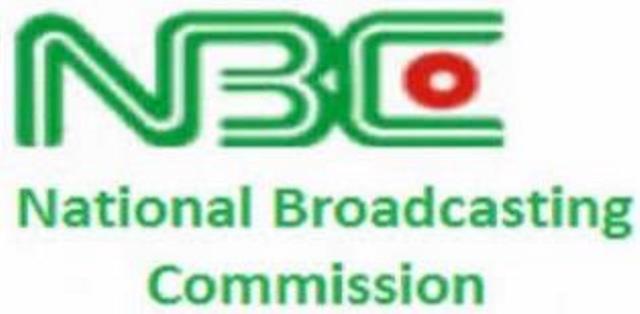Broadcasting
MoMo Bill Payment: What it is and why to use it

Payments are a necessity for both individuals and businesses. The need to make payments is perhaps the one thing all customers have in common. Daily, individuals and businesses pay utility bills such as electricity, cable tv and mobile subscriptions.

While most people prefer cash payments, it is not a practical option. Nonetheless, even credit cards have their limitations. How many times have you completed a transaction, handed over your card to pay, and received the message “Declined” Or “network unavailable”?
This is why MoMo Bill Payment has simplified a lot of bill services for you! So, instead of carrying cash around or stressing over credit cards, you can simply pay bills using the MoMo PSB app or USSD code. MoMo Bill Payment services are convenient and efficient, with features guaranteed to keep your funds secure.
Read Also
To further help you understand what MoMo Bill Payment is, and how it works, this article has all the information you need. Let’s get started!
What is MoMo Bill Payment?
MoMo Bill Payment is one of the convenient services offered by MoMo PSB, a mobile banking platform that offers financial solutions to merchants, fintech companies, banks, financial institutions, digital service providers and other organisations. It offers an easy, safe and inexpensive way to ensure that all your bills are paid from the comfort of your homes or offices.
MoMo Bill Payment allows customers to carry out transactions such as renewing subscriptions, buying prepaid electricity, travel bills, school fees, making payments through MoMoPay and collections, and so much more. The goal of MoMo Bill Payment is to drive financial inclusion in Nigeria, by providing safe and accessible money transfer services to millions of unbanked and underserved Nigerians.
With MoMo Bill Payment, you can:
- Renew subscriptions with ease: Payment of subscription bills like DSTV, GOTV and Star times, has now become simple and easy for MoMo PSB customers.
- Purchase Electricity Units: With MoMo, paying electricity bills has become relatively easier. All you have to do is log in, supply your metre number and pay for specified units, all within minutes!
- Make Payment through MoMoPay: This enables merchants to receive payment for goods and services using Mobile Money Payment services.
- Make Payments through Collections. Enable remote collection of bills, fees or taxes.
Why MoMo Bill Payment?
- It is convenient: With MoMo Bill Payment, you have all the tools needed to manage and make bill payments, at both individual and business levels. From the convenience of just one app, paying your bills is super easy. You can conveniently pay electricity, cable TV, betting, and loan collection bills to specific vendors. This also saves you time with all your bills appearing in one place rather than logging into multiple websites or apps.
- Super easy to use: You can sign up quickly and start making bill payments in just 15 minutes. MoMo Bill Payment’s APIs are seamless, uncomplicated, and currently optimizable to give you the best experience.
- Keep your funds secure: With online banking, it is only normal to be skeptical. However, MoMo Bill Payment is committed to safeguarding the information and funds of its customers, from malicious actors. It makes use of the best security protocols to keep your transactions secure, information safe and data hidden during transactions. This is achieved through the activation of security measures such as real-time monitoring, and advanced data privacy tools.
- Promotes financial inclusion: MoMo Bill Payment makes use of technology and agency banking to mobilise bill payments and transfers from unbanked consumers in rural regions and any other location in Nigeria. That is, it makes it easy for people in rural and remote areas of the country who remain excluded from the financial system, to easily pay bills.Get to know about other MoMo PSB product features:MoMo Business
MoMo Agents
MoMo Homeland
MoMo API
Why hassle with payments when you have MoMo Bill Payment?
Get started, by dialling *671# on any network to open a MoMo wallet and pay your bills. You can also pay at any MoMo Agent Outlet. MoMo PSB is poised to enable millions of unbanked and underserved Nigerians to access a wide range of financial service products.
Interested in finding out more about MoMo Bill Payment? Visit our website at MoMo.mtn.com to create an account, and Follow @momopsb on all platforms to stay updated.
Broadcasting
5 Reasons Why Payroll Outsourcing Might Be the Smartest Move You Make

Accurate and timely payroll impacts costs, tax compliance, and employee morale. Many organisations assume that insourced payroll is inherently superior. Yet in today’s dynamic business environment, this assumption can be more costly. It can burden valuable personnel, increase compliance risks, and saddle organisations with expensive, yet obsolete, software.

Workplaces are becoming more complex through a wide variety of employment conditions, frequent regulation changes, and growth risks (especially when operating in multiple regions). Payroll systems don’t always keep up, which is why over a third of companies are dissatisfied with their internal payroll systems.
“The importance of accurate and timely payroll is undeniable. But assuming that insourcing payroll is inherently superior misses the mark. In today’s dynamic business environment, clinging to outdated internal systems is costly, diverts valuable personnel, and complicates software management,” says Heinrich Swanepoel, Head of Business Development at Deel Local Payroll, powered by PaySpace.
Outsourced payroll’s strategic advantages
Outsourcing payroll is a strategic move that adds scale and flexibility to an organisation’s operations. Whether it’s for five or five thousand employees, one office or multiple countries, using an experienced and technologically capable outsourced payroll provider creates crucial advantages in workforce management and adaptability.
Here are five key reasons why payroll outsourcing is a game-changer:
- Remove Legacy System Limitations and Costs: Outdated payroll software an expose you to delays, errors, and fragmented workflows. Outsourcing with modern technology provides flexibility. Providers can efficiently handle payroll tasks regardless of onboarding surges, market expansions, or workforce adjustments.
- Empower Staff for Higher-Impact Work: Outsourced experts add knowledge, coupled with payroll automation, secure collaboration tools, data integration, and enhanced financial visibility. They help key personnel in payroll, HR, and finance to focus on strategic, high-value priorities.
- Navigate Payroll Compliance: Outsourcing specialists make it their business to know local and international tax rules, labour laws, and data regulations. They use software with built-in compliance checks, audit trails, and secure document tracking. The provider shares and even inherits the responsibility of payroll software compliance such as GDPR, POPIA, SOC 1 & 2, and ISO 27001.
- Flexible payroll management: Outsourced payroll providers use scalable and flexible software to align with organisational changes, enabling their clients to adapt without reconfiguring payroll departments with restructuring or new hires.
- Access Advanced Features: Keeping up with new features and aligning them with operations is expensive and disruptive. Outsourced payroll providers introduce cutting-edge technologies like cloud computing, artificial intelligence, and data analytics as part of their core business strategies. They offer seamless integration with client business systems for real-time, fully compliant payroll operations that the client controls without adding technical risks.
Evaluating an outsourced payroll partner
Outsourcing payroll creates huge advantages. But not all outsourced payroll providers are the same. The best candidates combine human expertise with the advantages of modern cloud-native payroll platforms.
To evaluate a provider, test their payroll expertise and compliance knowledge. Security and data protection are non-negotiable, and assess their track record with other clients. Look at what software they use—the capabilities of the software and how well their people can use those features are as important as the staff’s professional capabilities. Are they masters of their tools as well as their craft?
Interrogate their service levels and how they extend capabilities to clients, such as self-service and ad hoc reporting. Evaluate the technology platform in terms of real-time data access, automated calculations, integration with HR and accounting tools, and compliance.
“Outsourcing payroll isn’t just about saving time — it’s a strategic move that positions your business for growth, compliance, and agility,” says Swanepoel. “With the right partner, you can reduce costs, streamline operations, and focus your energy where it matters most: on your people and your business.”
Broadcasting
Idris, Information Minister Says Only NBC can Suspend Broadcast Licences

Mohammed Idris, minister of information, has reacted to the closure of Badeggi FM radio station in Niger state.

Mohammed Idris, minister of information,
On Friday, Umar Bago, governor of Niger state, ordered the commissioner of police to seal off Badeggi FM radio station over alleged incitement of violence.
A statement by Bologi Ibrahim, chief press secretary to the Niger governor, said the “daily activities of the radio station have been unethical”.
“Governor Bago also accused the owner of the station of incitement of the people against the government and directed that the license of the radio station be revoked,” the statement reads in part.
Reacting in a statement at the weekend, Rabiu Ibrahim, special assistant (media) to Idris, said the ministry has noted concerns raised by stakeholders in the media industry over the governor’s directive.
Idris said the National Broadcasting Commission (NBC) has the legal authority to suspend or revoke broadcast licences.
“While acknowledging the concerns raised, the Ministry notes that the suspension of broadcasting licenses falls within the purview of the National Broadcasting Commission (NBC), as stipulated by law,” he said.
“In light of this, the Ministry welcomes the decision of the Niger State Government to formally report the perceived “unethical behavior” of Badegi FM to the NBC for resolution.
“The Minister appeals to all parties to remain calm, assuring that the NBC has the necessary mechanisms to resolve the issue in a fair and impartial manner.”
According to the information posted on its website, Badeggi Radio 90.1 FM, Minna, is a private radio station established in 2020 by Shuaibu Badeggi.
Broadcasting
Government of Ghana Slams MultiChoice, Insists on DStv Price Cut

Samuel Nartey George, minister for Communications, Digital Technology and Innovation, Government of Ghana, has accused MultiChoice Ghana of showing disregard for Ghanaians by refusing to reduce its DStv subscription fees despite favourable economic indicators.

In a social media post on Sunday, August 3, the minister said the company’s latest statement vindicates his long-held view that it does not take Ghanaians seriously.
“I have read the release by DStv Ghana and taken full consideration that they vindicate my earlier position that they simply do not take the Ghanaian people serious enough,” he wrote.
The minister had earlier given MultiChoice Ghana a seven-day ultimatum, ending August 7, to review its bouquet prices downward or face the suspension of its operating licence by the National Communications Authority (NCA).
He cited the cedi’s appreciation, dropping inflation, and reduced fuel prices as justification for the directive.
But MultiChoice, in a statement dated August 3 and signed by its Alex Okyere, managing director, said while it acknowledges the recent economic gains, it finds the demand to reduce prices untenable.
“While we appreciate the recent appreciation of the Cedi (which we have never referred to as a ‘fluke’), it is not tenable to reduce the DStv subscription fees in the manner proposed by the Minister,” the statement said.
The company said it had engaged the Ministry and the NCA in good faith and remained committed to resolving the matter through constructive dialogue for the interest of its stakeholders and staff.
Sam George, however, dismissed these claims, noting that the company responded differently when it was faced with similar pressure in Nigeria.
“The same group operating in Nigeria reversed price increases when the Nigerian authorities sued them. The Nigerian House of Representatives took the matter up and ordered a suspension of the increases. They complied,” he said.
He also revealed details of an alternative proposal by the company, which he rejected.
According to him, MultiChoice had suggested maintaining the current prices while halting the transfer of revenue to their headquarters.
“In all honesty, that offer lacks any logic in my estimation. The essence of my action is to see Ghanaians pay a fair price for the services offered. How does this proposal solve the real issue?” he asked.
I have read the release by DStv Ghana and taken full consideration that they vindicate my earlier position that they simply do not take the Ghanaian people serious enough.
The same Group operating in Nigeria reversed price increases in Nigeria when the Nigerian authorities sued them.
The Nigerian House of Representatives took the matter up and ordered a suspension of the increases. They complied.
This year, in April, at a time the Ghanaian cedi had seen a ~10% appreciation against all major currencies, inflation had dropped by over 5% and fuel prices had also dropped, DStv announced and implemented a 15% increase.
I believe in the interest of transparency, I make public the alternate proposal that DStv offered to me that I flatly rejected.
They proposed that I allow them maintain the collection of the exorbitant bouquet prices as they stand but order them not to send the revenue to their headquarters.
In all honesty, that offer lacks any logic in my estimation. The essence of my action is to see Ghanaians pay a fair price for the services offered. How does this proposal solve the real issue?
For far too long, corporations have fleeced the Ghanaian people.
There has been a RESET and it demands a new style of public service that is fiercely protective of the Ghanaian people.
I remain empathetic to the Ghanaian staff of DStv but I believe that they should stand with the rest of us as we demand what is right for us.
I remain open to “constructive engagements” that are centred on PRICE REDUCTION. Anything else is tangential and of no consequence.

 General News2 days ago
General News2 days agoFearless Freedom Launches to Tackle Inequality and Champion Global Economic Inclusion

 Telecom1 day ago
Telecom1 day agoMTN @ First-ever CED, Pledges to Address Subscribers’ Concerns

 Telecom1 day ago
Telecom1 day agoAirtel Nigeria Raises Infrastructure Spending to $39m

 General News1 day ago
General News1 day agoNOA Warns of Fake N1000 Notes in Circulation, How to Identify Them

 General News1 day ago
General News1 day agoNCC, IHS Towers Lead Others To NITRA-ALTON CNII & Telecom Sustainability Conference 2025

 Broadcasting1 day ago
Broadcasting1 day agoGovernment of Ghana Slams MultiChoice, Insists on DStv Price Cut

 E-Financial1 day ago
E-Financial1 day agoWest Africa Emerging as Crypto Adoption Epicentre- SEC Boss

 Broadcasting1 day ago
Broadcasting1 day agoIdris, Information Minister Says Only NBC can Suspend Broadcast Licences























